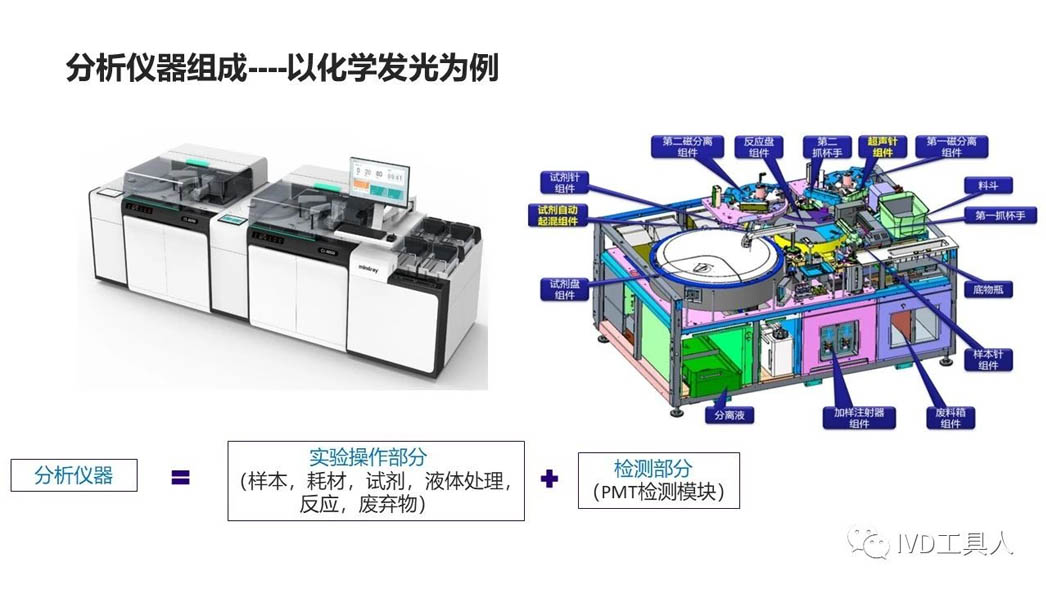What is a chemiluminescent immunoassay analyzer

A chemiluminescent immunoassay analyzer is a specialized instrument used in clinical laboratories to perform chemiluminescent immunoassays (CLIAs). CLIAs are a type of diagnostic test that utilizes the emission of light resulting from a chemical reaction between a labeled molecule (usually a fluorescent or enzyme-labeled antibody) and a specific antigen or analyte present in a patient sample, such as blood or urine.
Here's how a chemiluminescent immunoassay analyzer works:
Sample Preparation: Patient samples are collected and prepared for testing. These samples may include blood, serum, plasma, urine, or other bodily fluids.
Reagent Addition: The prepared sample is combined with reagents that contain labeled antibodies specific to the target analyte. These labeled antibodies emit light when they bind to the target antigen.
Immunochemical Reaction: The labeled antibodies in the reagent bind to the target analyte in the patient sample, forming immune complexes.
Chemiluminescence: A chemical reaction is triggered by the immune complex formation, leading to the emission of light. This light emission is proportional to the amount of target analyte present in the sample.
Detection: The chemiluminescent light emitted is detected and quantified by the analyzer's sensitive photomultiplier tubes or other light-detecting technologies.
Data Analysis: The instrument's software processes the detected light signal and calculates the concentration of the target analyte in the patient sample.
Chemiluminescent immunoassay analyzers are widely used in clinical laboratories for various applications, including measuring hormone levels, detecting infectious agents, monitoring autoimmune diseases, assessing cardiac biomarkers, and more. They offer high sensitivity, a wide dynamic range, and the ability to multiplex, allowing for the simultaneous measurement of multiple analytes in a single sample. These analyzers play a crucial role in the biomedical industry by providing accurate and reliable diagnostic information that aids in patient care and medical research.
Related Immunoassays
- Cardiac Markers
-
Tumor Marker
-
PGII
-
G17
- CA50
-
CA125
- CA242
-
CA15-3
- CA19-9
- CA72-4
-
Pepsinogens I (PGI)
-
Human Epididymis 4 (HE4)
- Prostate-Specific Antigen (PSA)
- Squamous Cell Carcinoma (SCC)
- Neuron-Specific Enolase (NSE)
- Cytokeratin 19 Fragment (CYFRA21-1)
- Human Progastrin-releasing Peptide (ProGRP Tumor Marker)
- Protein Induced by Vitamin K Absence or Antagonist-II (PIVKA II Tumor Marker)
- Alpha-fetoprotein(AFP)
-
CEA
-
Human Chitinase 3-like 1
-
PGII
- Inflammatory Marker
- Infectious Disease
- Hormones
- Thyroid Function
- Glucose Metabolism
- Bone Marker
- Others
-
Heterophilic Blocking Reagent
- Animal Diagnostics

















